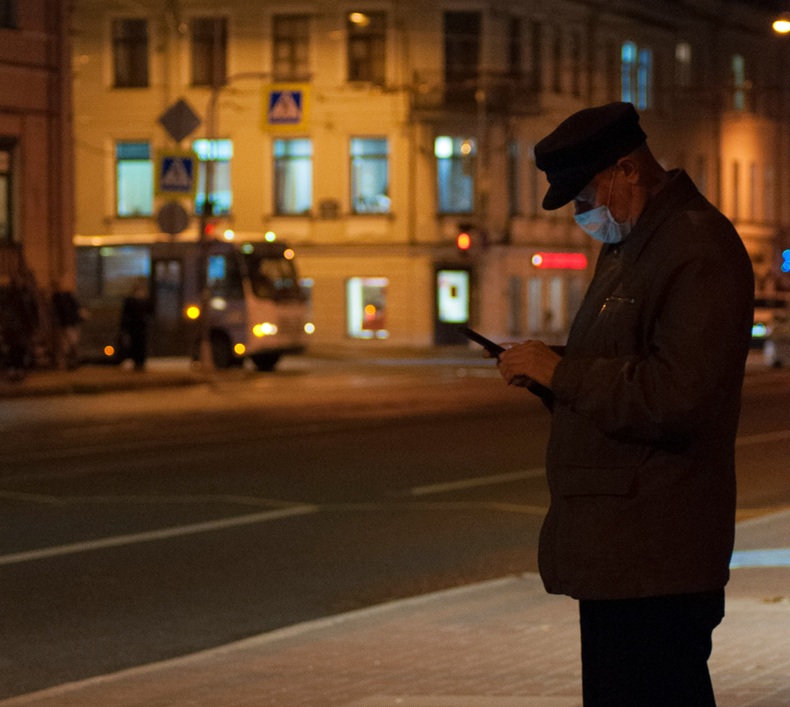Russian mobile phones without connection: the digital front of the war with Ukraine
To limit the damage to strategic targets from Ukraine’s remote-controlled drone counterattacks, Russia is shutting down mobile networks in many areas. In some regions, signals have been cut off indefinitely. People try to adapt as best they can, but some businesses now accept only cash.
Moscow (AsiaNews) – For several months now, Ukraine has met Russia's increasingly devastating attacks using targeted strategies, sending attack drones against the most sensitive infrastructure targets across Russia to destroy military arsenals and weapons factories, and using its hackers to disrupt Russia's digital and communications capabilities.
A first, symbolically charged attack occurred on 22 April, Vladimir Lenin's birthday, when a major weapons stockpile exploded near Kirzhach, a town evocative of a Russia that vanished under the Tatar yoke only to re-emerge centuries later, thanks to Prince Ivan Kalita of Moscow and Saint Sergius of Radonezh, to be reborn in the Orthodox faith and reconquer the world.
After that, central and regional authorities, fearing Ukraine’s ability to reach the most strategic sites, began disconnecting mobile connections around them to avoid interference from drones that navigate using Russian operators' SIM cards.
At first, it was thought that this emergency would be overcome quickly, once adequate countermeasures were developed, but time has passed and the drone attacks continue; now security measures have become almost permanent across much of Russia’s territory.
The authorities cut off mobile networks at times of danger in specific locations, where the military expect attacks; however, this ability to select targets appears impractical, especially in the provinces, and governors end up disconnecting entire regions indefinitely.
The feeling is spreading that everyone is disconnected, everywhere and forever, and people are trying to adapt to a new normal that seems unacceptable, since mobile networks have become an essential part of everyone's lives.
As Novaya Gazeta documented in a report, taxi and public transport drivers are among the first to seek new approaches. As mobile workers by definition, they have lost route maps, traffic jam alerts, and navigation systems in their cars and phones.
On buses and taxis, many passengers used to pay with a tap of their phone, and now drivers ask through the window if they have cash; otherwise, they will not even open the doors. They also make tech-dependent passengers get out, scolding them for not carrying real money.
Some pay a portion in cash, promising to pay back at home or at the office via landline Wi-Fi, their last hope of not being cut off from the entire world.
The places where people can still surf the internet are now veritable caves, blending prehistory and the artificial world, in a complete short-circuit of the relationship with the outside world.
Electricians, plumbers, and repair technicians can no longer be contacted by customers in times of need, but instead receive all communications at once in the evening, when they go home or to their office, while emergencies and serious incidents go unheeded.
Contacting call centres offers no help, as the operators lack official information, claiming that they are unaware of the lack of connections, especially the automatic responders created with artificial intelligence.
Voice conversations remain (at least until they too are blocked), which many people are struggling to get used to again.
The only ones who benefit from these situations are the owners of bars and restaurants, and other establishments that allow customers to connect to fixed-line Wi-Fi for a fee or a percentage of purchases and time used.
It is also not uncommon to see large groups of people sitting on the ground in the yards of mechanics and tyre dealers.
The aim of the Ukrainian attacks is not only to repel and create obstacles for the enemy, hindering communications and movement, blocking airports and train stations, but also to paralyse the country in the very minds of its people.
However, Russians are not so easily thrown into complete despair, retaining an ancestral memory of darker times, through which they managed to survive.







.png)










